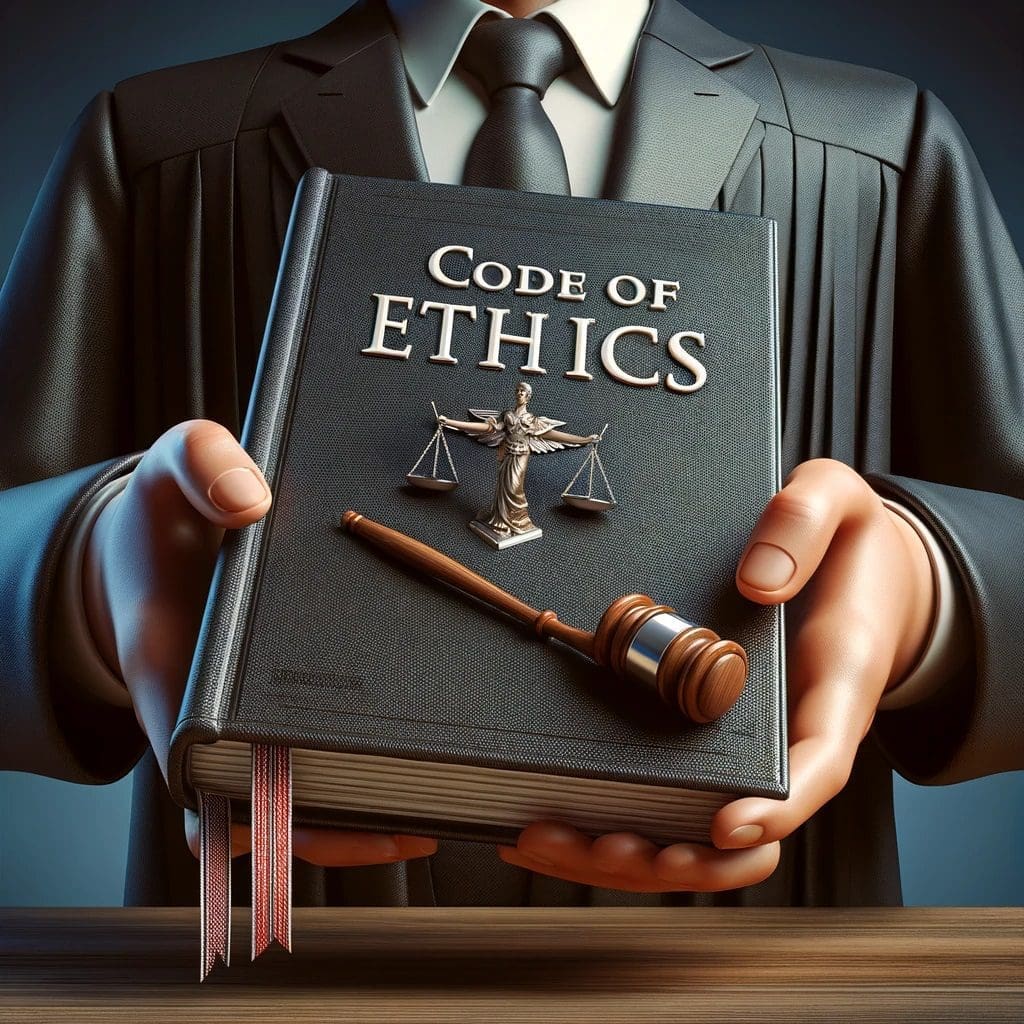Are New Ethical Standards Changing Law Enforcement Practices Today?
The significance of a “Code of Ethics” in the realms of law and criminology cannot be overstated. It forms the bedrock of professional integrity and guides practitioners in their duties towards society and the individuals they serve. As a set of principles, it outlines the standard of conduct expected from those in the legal profession, encompassing law enforcement officers, attorneys, judges, and other legal professionals.
Law enforcement officers, by the nature of their responsibilities, are held to a particularly high ethical standard. They are not only tasked with upholding the law but also with doing so in a manner that respects the rights and dignity of individuals. The Law Enforcement Code of Ethics, adopted in 1957 by the International Association of Chiefs of Police, encapsulates these expectations, emphasizing the role of officers in protecting the community, using force judiciously, and maintaining impartiality. The code addresses critical issues like the use of force, profiling, and the elimination of bias from policing practices.
Legal counsels, comprising attorneys and legal professionals, also operate under stringent ethical guidelines. Their role in advocating for justice while respecting the confidentiality and rights of their clients is paramount. Ethical considerations for legal professionals include maintaining client confidentiality, behaving professionally in both personal and professional settings, and providing neutral representation in court. These standards ensure that the legal process is fair and that the rights of all parties involved are respected.
Citizens, too, have an ethical role in the criminal justice system. Their interactions with law enforcement and participation in legal processes must be guided by respect for the law and a commitment to truthful reporting. Ethical considerations for citizens involve treating law enforcement officers with respect, advocating for causes within legal boundaries, and willingly sharing accurate information when necessary.
The enforcement of ethical standards in criminal justice involves various strategies. Punishing unethical behavior is crucial in setting an example and maintaining the integrity of the profession. Training programs are essential for reinforcing the code of conduct and preparing professionals to handle complex ethical dilemmas. Leadership by example is another critical aspect, with leaders expected to demonstrate transparency, fairness, and accountability in their actions.
The “Code of Ethics” serves as more than a set of rules; it represents a commitment to justice and fairness. It underscores the importance of ethical behavior in maintaining public trust and the effective functioning of the criminal justice system. In this article, we explore the foundations, applications, and implications of ethical codes in law and criminology, delving into the roles and responsibilities of various professionals within this field.
Continuing our examination of the “Code of Ethics” in law and criminology, we turn our focus to specific applications and challenges in upholding these standards. The ethical landscape in criminal justice is complex and often fraught with difficult decisions and moral dilemmas. Navigating these challenges requires a deep understanding of the ethical codes and a commitment to upholding them in all situations.
In law enforcement, ethical dilemmas can arise in various scenarios, from decisions about the use of force to interactions with different community groups. Officers must balance their duty to protect with the need to respect individual rights and freedoms. Ethical training and a clear understanding of the code of ethics are vital in helping officers make decisions that align with both legal standards and community expectations.
Legal counsels face their own set of ethical challenges. Attorneys must navigate the fine line between zealously representing their clients and maintaining integrity and honesty. They must also grapple with issues related to client confidentiality and conflicts of interest. Adhering to ethical guidelines helps ensure that legal counsels uphold the principles of justice and fairness, essential for the credibility of the legal system.
Citizens’ ethical responsibilities, though different in scope, are no less important. Engaging with the legal system, whether as jurors, witnesses, or in other capacities, requires an adherence to principles of honesty and fairness. Citizens’ ethical behavior supports the foundational principles of the criminal justice system and helps in maintaining its integrity.
The challenges in upholding ethical standards are further compounded by evolving societal norms and legal landscapes. Issues such as technological advancements, changing societal attitudes, and new legal precedents continually shape and redefine ethical considerations. Criminal justice professionals must stay informed and adaptable, ensuring their actions and decisions are ethically sound and relevant to contemporary issues.
Ultimately, the “Code of Ethics” in law and criminology is more than a regulatory framework; it is a commitment to upholding the highest standards of justice and integrity. This article delves into the complexities of ethical decision-making in criminal justice, highlighting the ongoing efforts to maintain these standards and the pivotal role they play in the administration of justice.
- Model Rules of Professional Conduct – American Bar Association
- Code of Ethics – American Society of Criminology
- Legal Ethics Overview – Legal Information Institute
- Ethics in Criminal Justice – U.S. Department of Justice
- Universal Ethics Code in Criminology – International Society of Criminology














